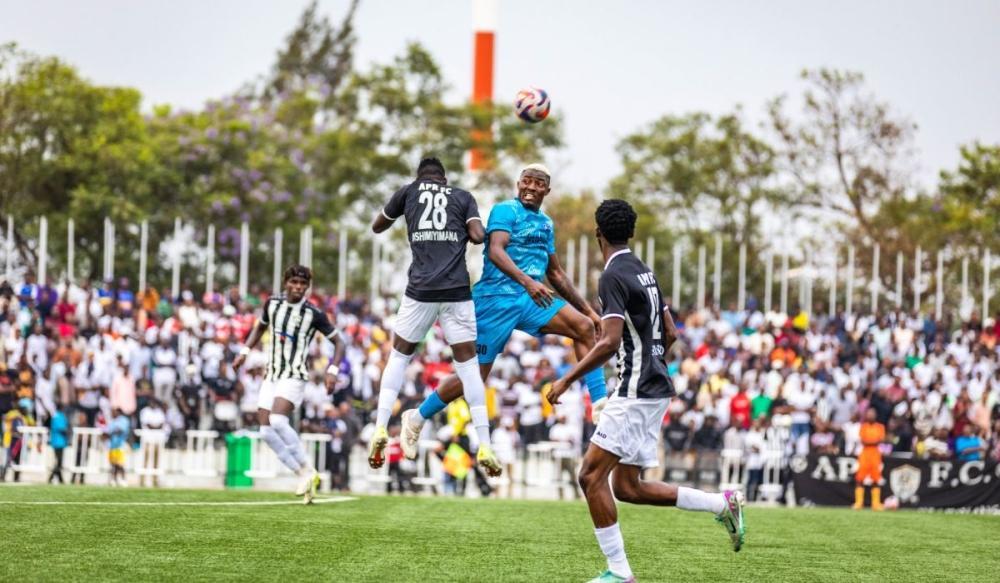Africa-Press – Rwanda. When the Rwanda Football Association (FERWAFA) released its new directive on the regulation of foreign players in Rwanda Premier League (RPL), the timing could not have been more puzzling. The announcement came after the transfer window had closed, on August 30, leaving clubs blindsided and with no real opportunity to adjust their recruitment strategies in line with the newly imposed rules.
This raises a fundamental question. Are all clubs competing on a level playing field? Smaller clubs which often plan and recruit based on the previous season’s quota might feel disadvantaged, while wealthier teams that registered more than eight foreign players before the window closed could see this regulation as a windfall. The lack of prior communication leaves much to be desired in terms of governance and fairness.
The financial equation
The regulation also comes with steep financial implications. Under the new directive, registering a single foreign player now costs Rwf2 million. For clubs aiming to field the maximum quota of eight foreign players, that amounts to Rwf16 million—before even factoring in sign-on fees, monthly salaries, performance bonuses, or taxes. To put this into perspective, the prize money for winning the entire league was only recently increased to Rwf80 million.
A quick calculation shows that if all 16 clubs register eight foreign players, FERWAFA could easily collect Rwf256 million. That figure nearly matches the entire prize money pool for all teams from first place to eighth, which totals Rwf280 million. In other words, registration fees alone could cover 91% of the league’s prize budget.
The question is whether this revenue is being reinvested in football development—or simply becoming another cost burden on clubs, many of which already struggle to pay their players. A recent study showed that only 5 out of 16 clubs managed to pay 100% of their salaries and staff wages last season. That’s just 31.25% of the league—leaving the rest in financial disarray. With such fragility, how sustainable is this new model?
Inflation and “Rwandanization” of foreign talent
There is also the issue of the domestic player market. History offers lessons here. Back in 2011, when the league capped foreign players at three, clubs turned almost exclusively to Rwandan players, inflating local transfer values in a limited talent pool. The result was a surge in the “naturalization” of Burundian players to create a bigger pool of affordable and competitive “Rwandan” talent.
Are we about to repeat this cycle with the eight-player limit and costly registration fees? If clubs are already unable to cover basic salaries, how will they sustain inflated wages for a small pool of local players, especially when foreign players now come with hefty registration costs?
Football’s growing popularity, untapped potential
On the surface, the league has shown promising signs of growth in recent seasons. In the 2021/2022 season, a total of 175,554 tickets were sold, generating Rwf444.4 million. In 2023/2024, 146,107 tickets were sold for Rwf420.4 million. Last season (2024/2025), the numbers surged to 246,314 tickets worth Rwf802.8 million.
This means ticket revenue grew by 81% in just one season (from Rwf420.4m to Rwf802.8m), while attendance jumped by 68% (from 146,107 to 246,314). Clearly, the appetite for Rwandan football is growing.
But let’s keep this in perspective. In a country of 14 million people, only about 246,000 attended across 240 league matches last season—an average of just 1,027 spectators per game. That’s less than 0.02% of the national population attending each match. Encouraging progress, yes, but still a long way from tapping into Rwanda’s true football market potential.
The big question is whether FERWAFA’s new directive will elevate the quality of football on the pitch and attract even more fans into stadiums—or whether it risks financially burdening clubs in ways that could backfire.
Question of flexibility
The issue is not only the fee itself but also the way it has been introduced. Most clubs already finalized their budgets for the 2025/2026 season, with recruitment plans in place for January.
Dropping a new Rwf2 million fee at this stage leaves them scrambling. Why Rwf2 million and not Rwf500,000, 1 million, or 1.5 million? Where was the consultation? A more balanced approach could have been to give clubs a two-year adjustment period to gradually adapt to this directive. Alternatively, clubs could have been allowed to register their foreign players this season at a reduced fee, with the full amount applied next season. Even better, why not let clubs pay in instalments, easing the financial burden while still ensuring compliance?
Such flexibility would not only protect clubs from sudden financial shocks but also enable FERWAFA to achieve its objective of regulating foreign players without destabilizing the league.
Development first: What if the money went to the youth?
Imagine a different scenario. Instead of spending Rwf16 million on registering foreigners, what if that money was redirected toward youth teams or B squads? That investment could improve training, nutrition, and exposure for young Rwandan footballers—expanding the talent pool and raising quality over time.
In a league where only a third of clubs are financially stable, reinvesting funds into development would be a long-term solution rather than a short-term squeeze. If each club reinvested even half of its foreign player registration budget into its youth structures, we would see a sustainable shift in the quality of local football.
Forgotten giant: Sports Scolaire
This discussion also ties into Rwanda’s wider sports ecosystem.
For nearly two decades, school competitions under Fédération de Sports Scolaire were the bedrock of nurturing elite athletes across football, basketball, volleyball, athletics, and other disciplines. But one institution managing all disciplines is a tall order.
Perhaps it’s time for each federation to establish dedicated school sports departments. A more specialized, streamlined approach could revive school competitions as a genuine feeder system for national leagues and national teams.
The regulation on foreign players is not inherently wrong. Rwanda, like many nations, must strike a balance between giving local talent opportunities and raising the competitive standard of its league. But football is not just about imposing quotas and fees—it’s about long-term planning, investment in development, and creating an ecosystem where both local and foreign players can thrive.
If FERWAFA is serious about building Rwandan football, the real test will not be how much it can collect in registration fees, but how effectively it reinvests those funds into nurturing the next generation of players and filling stadiums with fans.
For More News And Analysis About Rwanda Follow Africa-Press






